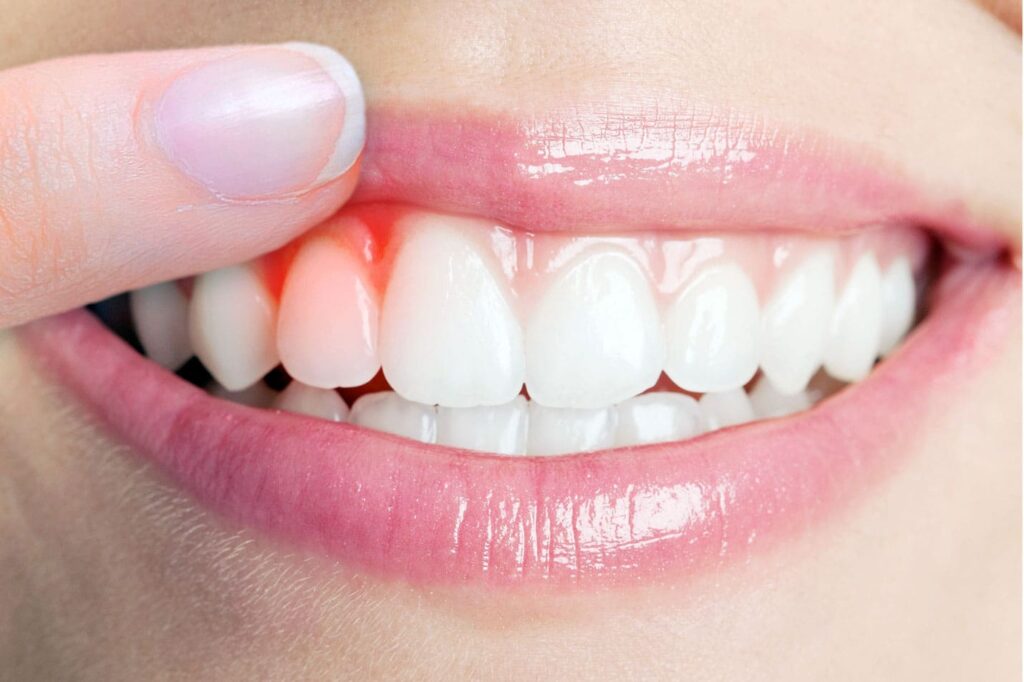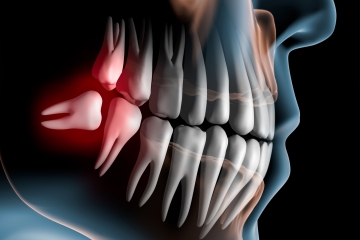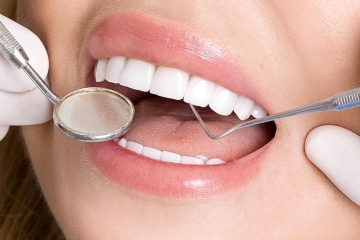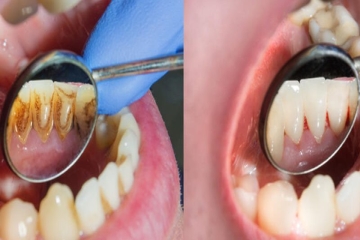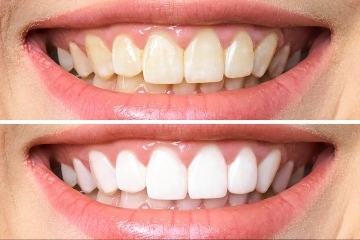Gingival diseases occur as a result of inflammation of other auxiliary tissues, which are the supporters of the teeth in the lower and upper jaws and other auxiliary tissues, supporters of the teeth. Periodontology in medicine; It covers the concepts of diagnosis of gum diseases, their treatment and life -long use of healthy gums. Almost 80 %of dental loss in adult patients are unfortunately due to periodontal (periodontal). Early diagnosis of gum problems allows the treatment to be performed more quickly. Because early diagnosis prevents inflammation or other problems from progressing to the toothbone, so that there is no loss of tooth.
Gingival diseases generally develop in 3 different stages. The first of these is called gingivitis. This stage is the inflammation of the gum due to bacterial plaque density. The second stage is the damage of the soft tissues and bone surrounding the periodontitis, which can be damaged by the patient's own efforts. Finally, the third stage is the advanced periodontitis. In this last stage, dental loss is inevitable if there is no specialist treatment and surgical intervention.
Symptoms of gum disease
Gingival diseases can sometimes progress without pain or pain. Therefore, in order to be diagnosed, the specialist doctor is required to control. However, many symptoms experienced by the patient are doubtful of gum diseases and these doubts must be carefully handled. Gingival diseases can be seen in individuals of all ages, but the largest group of risks are adults. When you see one of the symptoms we will specify, it will be useful for you to go to the dentist.
-The color of the meat is red and fried, the presence of certain bloating (the gums normally have a pinkish color and texture)
-The fact that the gums look longer than normal, that is, the gums withdrawn from the tooth
-Bleeding of the gums even when using floss even during the brushing
-The inflammation and discharge of teeth meat
-The an obvious intervals between tendency
-Felt the change of taste in receiving and drinking foods
-Shaking of the plants depending on weakness
-In the mouth consumption, mouth or burning in the mouth
-Bad smell occurred in the mouth
-Difficulty in attaching or placement of prosthesis in patients with prosthesis tooth
-Excessive sensitivity to teeth and gums in cool and hot drink consumption
Causes of gum diseases
To sort the most caused by gum diseases;
Oral and dental hygiene: When daily oral and dental care is done without interruption, the formation of bacterial plaque in the mouth decreases greatly. Regular brushing of the teeth, the use of floss and mouthwash at the points where the brush cannot reach, and the choice of mouthwash remove the plaques from the teeth. These malicious bacteria, which are removed from the dental and are considered as foreign substances, cannot operate on the tooth and cause irritation of the gums. In this way, the formation of dental and tartar is prevented and prevented in the bad image.
Use of cigarettes and coffee: The risk of developing gum diseases increases by almost 75 %compared to an individual who does not use an individual with a high amount of cigarette and coffee. The reason for this is that smoking and coffee provide a stain and rough structure on the teeth and provide the necessary environment for the easy to settle of bacterial plaques. Then bacteria that settle in the gum pockets and cause inflammation prepare the ground for gum diseases. In addition, many toxic and foreign substances inside the cigarette destroy the vitamins and minerals that the body needs for our teeth and gums.
Drug Effect: In some cases where medication should be used regularly, these drugs can cause the growth of gums and different gum problems in patients as side effects. If it is not possible to cut the drug, the specialist dentist must be discussed and the necessary treatment plan for the gums should be created.
Diseases affecting diabetes and immune system: The majority of patients have a problem of dry mouth due to diabetes -related reasons. This causes wounds to form because the mouth is dry. The quick opening and late recovery of wounds also puts diabetes at risk more than normal. In patients with diseases that affect the immune system (celiac, lupus, AIDS), the body defense system collapses and the necessary struggle against dangers such as periodontal infection and inflammation cannot be achieved. Oral and dental conditions of individuals with diseases where diabetes and immune system collapsed should be kept under control.
Unbalanced nutrition: A, B, C, K vitamins and mineral deficiency in the gums tenderness and some problems in the form of bleeding while brushing. This is the signal of larger gum diseases that may occur in the future.
Stress: Under some conditions, excessive stress in individuals caused gum withdrawal has been observed in the light of various studies.
Treatment of gum diseases
Periodontal diseases are more easily treated and kept under follow -up. The biggest responsibility here is again the patient. The sensitivity to the oral hygiene after the doctor's treatment is critical for the healing process and not to repeat the disease. The first step in the treatment of gum diseases begins with the recovery of teeth from tooth plaques and dental stones. Thus, the root surfaces of the teeth are cleaned and the gum pockets are relieved. The cleaning process eliminates the factors that cause inflammation of the gums. In the initial level called gingivitis, a regular oral care is sufficient after this cleaning process.
During the treatment of gingival disease (periodontology), surgical interventions may sometimes be required. The aim of this surgical intervention is to destroy the dental stones in the periodontal pockets that surround the teeth. The root surface can only be made in this way. After treatment, the patient should go to physician control at regular intervals. Dental plaque and dental pepper formations should be kept under control. But in order to ensure continuity, the person should not neglect oral care and pay attention to hygiene. It should not be forgotten that effective oral care is one of the best dental treatment methods.
